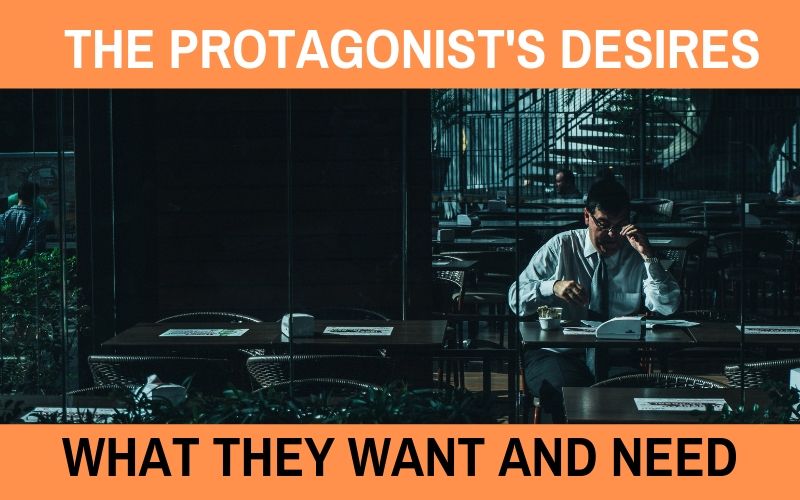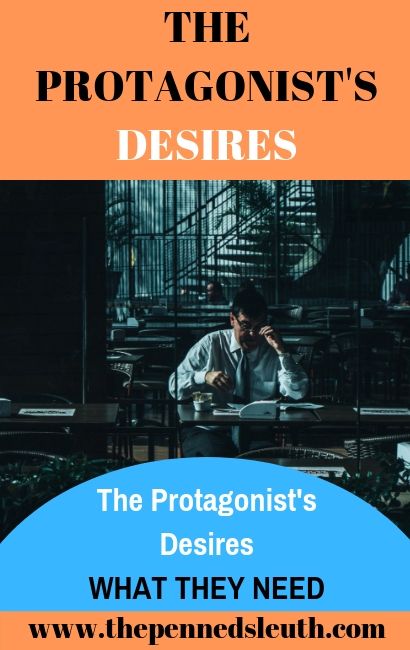Latest Writing Video! |
|
The protagonist is a difficult character to write. You need to meet the expectations of the reader and at the same time, not be so generic. Afterall, so many protagonists seem to go the same way in writing today. I’m going to show you how to write a protagonist that both fits your plot, and fits their personality. Let’s begin! The Story-Based DesireThis article is centred around the protagonists desires. What makes them human are their wants and needs. Thus, their desires are what add to their character as well as the story. Having human characters helps the reader relate to them more. No, I don’t mean literally, as if the reader is thinking, “Oh, the main character is human too, we have so much in common.” The protagonist is made human by their desires their faults and vices. As such, it is very human for the reader to empathise when the protagonist encounters a harsh human emotion or perhaps a desire. The first desire I will be talking about in this case is the most important to the novel. The story desire. It is the desire for the character to follow the narrative, to oppose the antagonist, to save the world, or save themselves. It is the desire that pushes the character in the story. The desire can be founded on many things which express the emotions that the protagonist feels. For example, if the protagonist is driven through the story on the desire to get their revenge, it influences their actions, the way they speak and the decisions they make. Of course, that is one example. There are many more; for example, a knight saves the princess from the dragon for love; a soldier fights for his/her country, thus their desire is patriotism; a protagonist in a horror fights for survival, driven by fear. There are many more, but leaving that behind, you see where the story based desire comes from. The plot depends on the protagonist following a certain path, thus it is the desire that will will give your character reason to continue. There is nothing more unrealistic than a protagonist participating in the plot without a desire of some form. Even the desire as something as simple as wanting to do the right thing, is still a valid desire. The Personal DesireNow we reach the most interesting desire of all; the protagonist’s personal desire/s. The story-based desire is the desire that the plot depends upon, however, that is desire for the story, this is desire for the character. Both, I believe, need to be included to make an interesting character. In addition to that, the personal desire needs to be given the same amount of attention as the story-based desire. It is the personal desire that makes the protagonist more realistic and thus, more interesting. No protagonist should be devoted to their story-based desire alone. It is cold and leaves them as a bland character that at least, is hopefully, supported by more interesting side characters. However, a protagonist that shows concern for a more personal desire is far more believable. For example, a protagonist might desire to stop a villain in the end, but they also have a more personal desire to love another character, perhaps open a bakery or even take up a new hobby. A personal desire is often more common, as in it is more human. The personal desire often has no affect over the plot and is used more as a writing device to make the protagonist seem more relateable. However, this needn’t be so. There have often been novels and other media, such as movies, series and such, where the hobby or less professional skill of the protagonist helps them with the plot. I don’t mean something obvious as the protagonist having a hobby in bomb defusal, but perhaps they have experience in fighting from karate lessons or something of the like. Of course, that is not the main reason the main character has a personal desire. The personal desire is mainly ever used to add to the protagonists character and make them seem more human. However, it won’t make them seem more human as much as the next desire we will be discussing. The Corrupt DesireThe corrupt desire is something I had the most fun writing in my early books. It brought life to them in a way that I could not have foreseen, but now it is something I devoutly use in my novels. The corrupt desire is similar to a personal desire, but is more a vice than anything else. A fault that holds them back in some way. It is this desire that also makes them seem more human. Once more, this desire doesn’t need to necessarily hold them back in the story. A corrupt desire can simply be an unhealthy vice like smoking or perhaps kleptomania, stealing small things here and there. Of course, if it is your wish, this desire can be used as a main story point. An interesting character is one who overcomes their strongest fault to achieve their purest goal. Thus, the corrupt desire could be a love for the enemy that hinders the protagonist from saving people. Going further than that, perhaps the protagonist’s desire is evil and they wish to join the opposition or perhaps take their place. These all make for interesting faults and perhaps twists later in your story. I recommend adding a fault to your character in much the same way; give them something that makes them seem more morally grey and you’re certainly on your way to create an interesting character. Pondering that thought, as a writer you need to consider the fact that nobody in your books can be perfect. Everyone has their faults. It is these faults that make for interesting conflict and dialogue, so try to be creative with them as well. I hope you found this information helpful! (BONUS) Thank You!Thank you for reading through the whole article and as a token of thanks, I would like to offer you a FREE WRITING COURSE. To claim your FREE course, click here. This course is yours for you to enjoy and watch anytime! PS: You get a certificate for finishing the course as well! If you wish to join receive more free courses and discounts, join the WRITERS GROUP, and be kept up-to-date with all the bonus content. Pin for Later!
0 Comments
Leave a Reply. |







